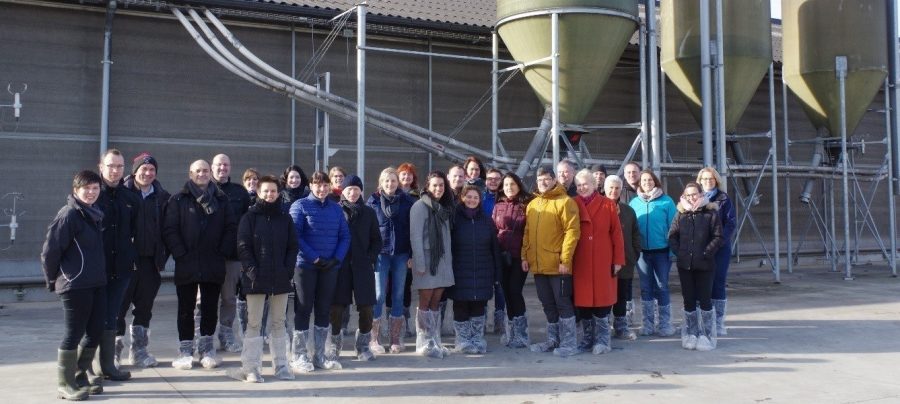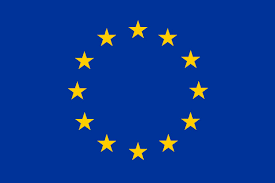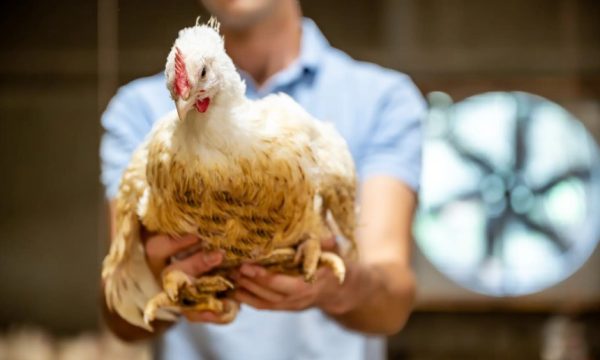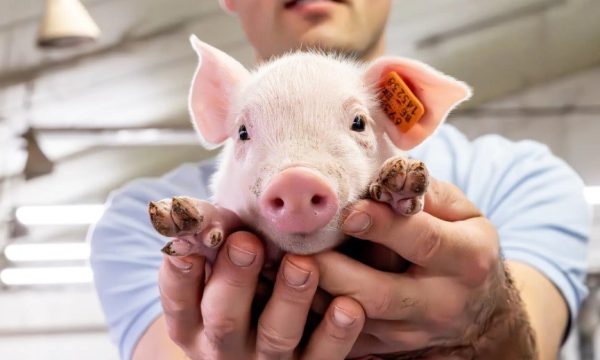Press release Reduction of antibiotics (resistance) in European livestock

In the recently-started Horizon2020 thematic network DISARM, European livestock farmers, veterinarians, consultants, researchers and industry from 9 countries are joining forces in the fight against excessive antibiotic use. In a wide range of practical cases, they seek the best (tried and tested) approach to achieve two goals at the same time: improved general animal health on the farms and a permanent and drastically lower antibiotic use. The Best Practices approach is disseminated as an example for the whole of European livestock farming.
DISARM
DISARM stands for ' Disseminating Innovative Solutions for antibiotic Resistance Management '. Fifteen partners from nine different countries started the project in early 2019 under the coordination of Flanders Research Institute for Agriculture, Fisheries and Food (ILVO).
Coordinator Frederik Leen (ILVO): "Antibiotic resistance is a global and growing problem that requires urgent, coordinated action by all concerned. DISARM therefore aims to create a robust commitment and the necessary framework conditions for the sector to continue the path towards safe and responsible use of antibiotics in livestock farming."
The problems, the scale and the technical processes of antibiotic use and the development of resistance genes have now been well monitored. Now the task is to raise awareness and provide the necessary tools and knowledge to achieve a reduction in practice.
Innovative
The main innovation is the diversity of the actors involved. Not only the farmers themselves, but also the vets, farm visitors, the entire food production chain, stakeholders from the broader sector and researchers are committed to establishing experiments together to ensure successful and lasting lower antibiotics (resistance) in the farm animals. DISARM has set quantitative targets: at least 600 diverse members (organizations/companies/individuals) will at the end have at least 10 best practice guides with 100 different case approaches available. Forty established company-specific health teams write global business health plans per animal sector, which are also tested at 40 pioneering farms. There will be a manual and a toolbox, so that the European livestock farmers can set up a multi-actor animal health team around better bio-security, improved general animal safety and a more cautious, more efficient use of antibiotics.
Serious need for responsible antibiotic use in humans and animals
It is estimated that 700,000 people die annually from exposure to antibiotic-resistant bacteria worldwide. This is a pressing problem, agrees Dr. Keiji Fukuda, former Assistant Director-General of the World Health Organisation: "If we do not stop this, we are on the road to a post-antibiotic era in which banal infections and minor injuries again become deadly." Responsibility lies with both human medicine and livestock.
In Flanders, the animal sector has committed to these objectives in 2016: By the end of 2020, a reduction of 50% of total antibiotic use compared to 2011 and a reduction of 75% of the use of the 'critically important antibiotics '. In the meantime, substantial steps have been taken and total antibiotic use in livestock farming fell by one-quarter. The use of critically important antibiotics declined by a whopping 84%.
Flanders is thus a forerunner in Europe. The DISARM Consortium aspires to allow European livestock farming to move in the same direction.
Professional interaction as a tool
To achieve this, the partners will do two main things over the next 3 years:
1) Build a network of livestock farmers, veterinarians, researchers and stakeholders from the supply and processing sectors as well as policy makers who are involved in antibiotic use from different perspectives and at different levels in the livestock production chain. Through co-creation, this network will collect and disseminate good practices on responsible antibiotic use in practice across Europe. Members will be recruited starting in April 2019.

More info:


